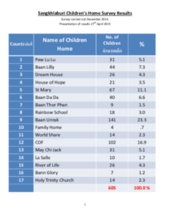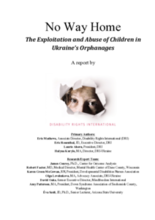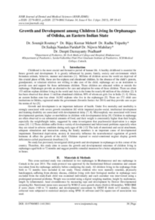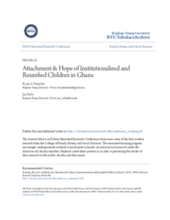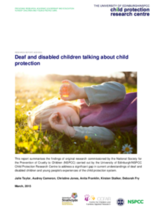Displaying 1111 - 1120 of 1510
This document contains the result of a survey taken in December 2014 of children’s homes located in Sangkhlaburi, Thailand.
This report is a product of a three-year investigation by Disability Rights International (DRI) into the abuses experienced by children - both with and without disabilities - in large-scale institutions, psychiatric facilities, and boarding schools in Ukraine, of whom there are nearly 100,000, according to the report.
The organizations profiled in these case studies have pioneered effective transitions from residential to family-based care.
This study was aimed at assessing growth and developmental outcomes of children living in orphanages in Odisha, India aged birth to 72 months and to make recommendations for “possible remedial measures” for addressing poor growth and developmental outcomes for children in institutions.
This paper reviews the empirical literature on the effects of institutionalization on young children’s development from the perspective of global child welfare practice and policy.
This poster provides a brief overview of research conducted in Ghana to examine how institutionalized children’s hope for the future may be impacted by perceived social attachments.
The aim of this study was to explore the experience of consultation in three residential childcare settings in the UK.
The aim of this study was to assess the prevalence and comorbidity of mental disorders applying diagnostic interviews in an entire population of adolescents living in residential youth care (RYC) in Norway.
This report summarises the findings of original research commissioned by the National Society for the Prevention of Cruelty to Children (NSPCC) in the UK carried out by the University of Edinburgh/NSPCC Child Protection Research Centre to address a significant gap in current understandings of deaf and disabled children and young people's experiences of the child protection system.
This report aims to provide the basis for an agenda to improve university attendance among care leavers in Australia by highlighting the nature and extent of the problem, and suggesting practical solutions within both the education and community service sectors.

